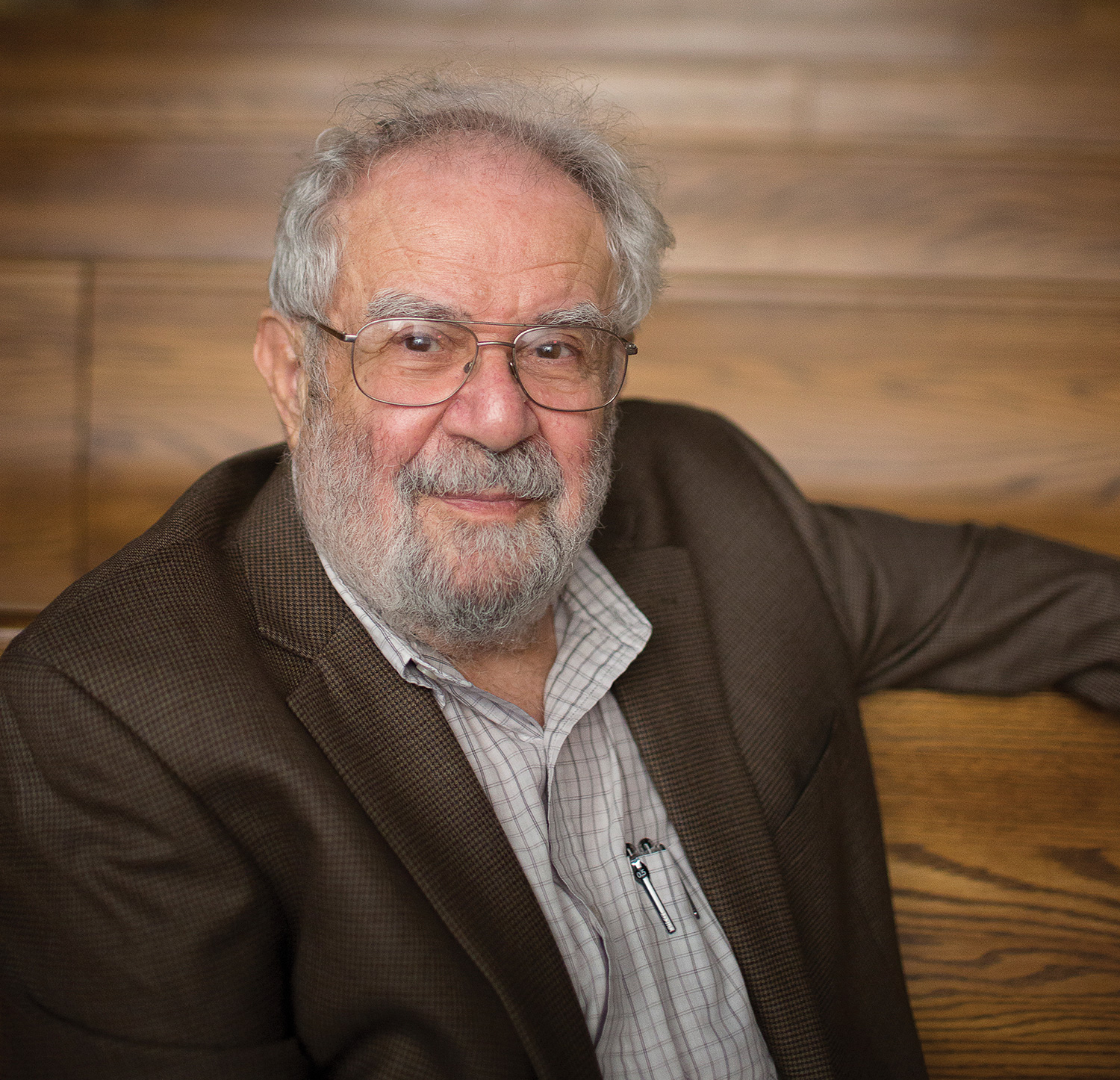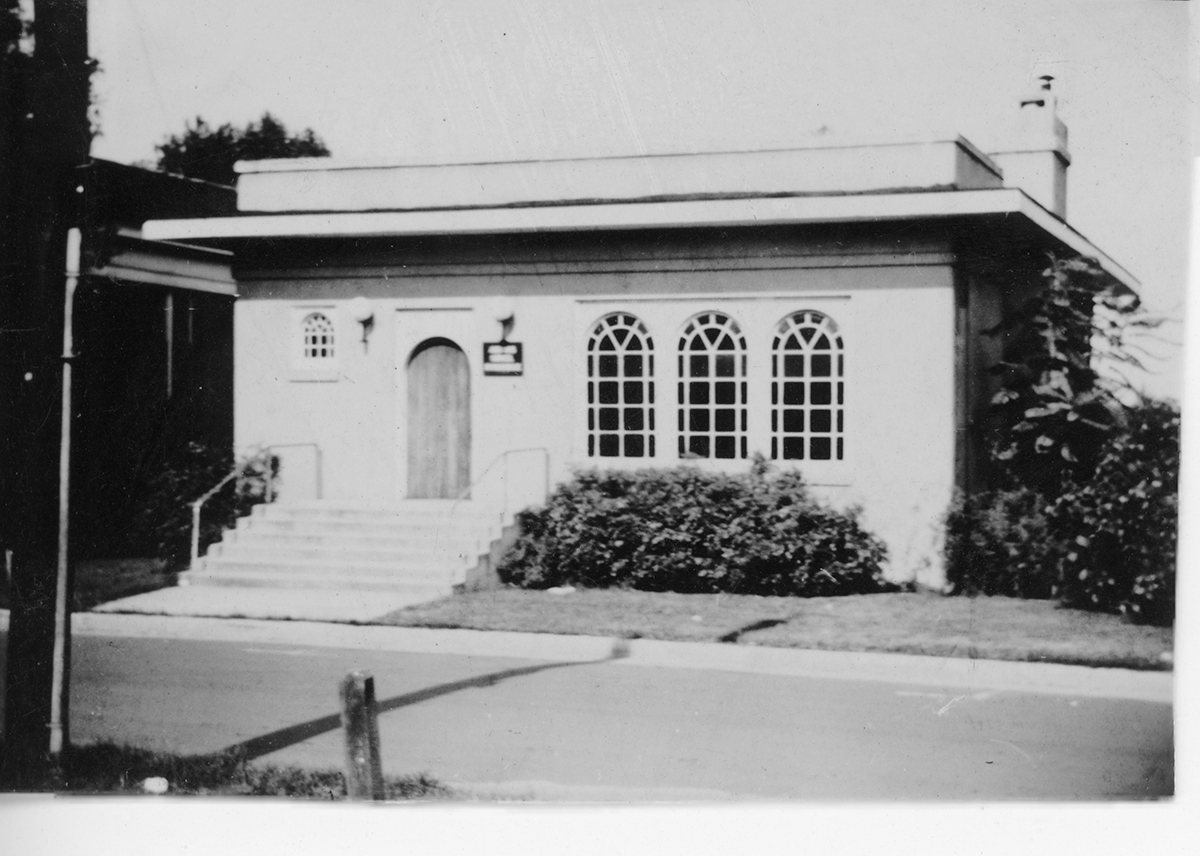
“I felt a moral obligation to publish,” says Dr. Walter Ziffer, author of what Jim Stokely — son of Wilma Dykeman and owner of Dykeman Legacy Press — calls “possibly the last great Holocaust memoir.” Photo by Matt Rose
When Dr. Walter Ziffer finished writing his memoir, Confronting the Silence: A Holocaust Survivor’s Search for God, in 2007, he considered it more a story about finding the American Dream than about WWII’s atrocities. A professor of theology, he teaches at Mars Hill University and at UNCA and is the author of many scholarly articles.
After surviving seven concentration camps during the war, Ziffer fled communist Czechoslovakia and immigrated to Nashville, Tennessee, in 1948, with only $5 in his pocket. In Confronting the Silence, Ziffer chronicles his rise to American citizenship. But it’s the manuscript’s first half — Ziffer’s early years — that stuck with Jim Stokely, son of WNC’s famed author Wilma Dykeman (The French Broad) and publisher of Dykeman Legacy Press.
Because of advanced survivor age — Ziffer turned 90 last month — Stokely has called the book “possibly the last great Holocaust memoir.” In these 100 pages, the professor wrestles with his faith and reveals early moments that are “indelibly inscribed” in his memory: “When I was pointed toward the group of youngsters and was forced to leave my family, my mother ran after me. Reaching out to me and weeping, she uttered ‘Walti! Walti!’”
In gut-wrenching lows, readers feel the unyielding familial love. Yet it’s just as present in lighter moments. Ziffer likes to recount the time he and his sister Edith found Malaga wine in the study. A sip here and there, and they managed to drain the bottle. “When my mother found the emptied bottle, all hell broke loose,” the passage reads.
But Mutti — an endearing term for mother — couldn’t stay mad for long. “She accepted anything and everything,” Ziffer says. He would later realize that Mutti and father Tati’s love helped him survive the Holocaust. That and “pure, sheer luck.”
Now living in Weaverville with his wife Gail, Ziffer spoke with Bold Life about his new book.
Being a memoir, the story is very family-oriented. How did your nuclear family change after the war?
My father never got back to whom he was. He had been in a sub-camp of Auschwitz, and his eyesight was going. My mother, on the other hand, was the old mother I had known before the war. She tried everything in the book to give my sister and me a more or less normal life.
You begin many chapters with a personal anecdote. You describe your first love, Lydia, or discuss the wine incident. Was this for relief?
It shows the humanity in the family. … We would laugh to get a charge out [our mother]. I remember one time she came to slap me because I had taken apart a beautiful clock. I couldn’t put it back together, of course. … I picked her up and sat her on a chest of drawers. I just sat her up there, and we both started laughing. We had a wonderful relationship.
Do you still have a taste for Malaga wine?
Oh, absolutely. That’s good stuff. It’s a sweet, fairly heavy dessert wine.
You had no intention of publishing. What changed your mind?
I felt a moral obligation to accept Jim’s offer, and I’m grateful for it. I don’t want to get into modern politics here, but things don’t look so good. The whole country has become more polarized and more upset with one another. Just this morning we saw an online report about attacks on Jewish communities. I ask myself: “Where does this sudden rise in violence come from?”
Why, after we’ve seen the effects of religious persecution, does it continue?
That’s an excellent question, but I’m not sure I can answer it. I’m not a sociologist or a psychologist, but you see, what a lot of people ignore is that anti-Semitism has been around for 19 centuries. It’s not a new phenomenon. So, this darn thing perpetuates itself. Plus, Jews are still a minority. Why are there still bad feelings about black people in America? Obviously, the span of time cannot be compared, but when you teach something long enough, it sinks in.
On Sunday, April 23, at 7pm, Dr. Walter Ziffer will speak and sign books at Agudas Israel Congregation (505 Glasgow Lane) in Hendersonville, observing the sundown start of national Holocaust Remembrance Day the next day. 828-693-9838. For info about the book, check out wilmadykemanlegacy.org or e-mail stokely.jim@gmail.com.



